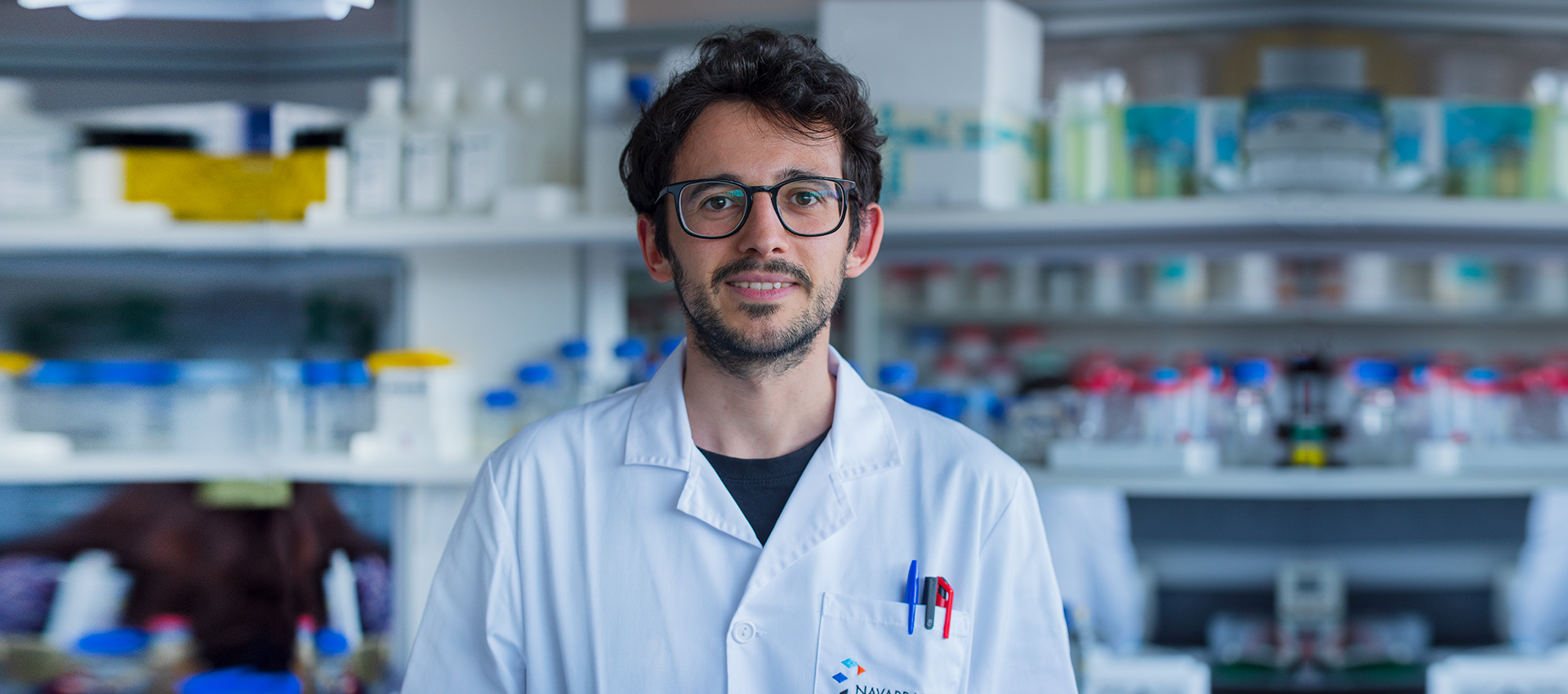
Pedro Dorado defends his doctoral dissertation on Friday, January 8
Pedro Dorado, a predoctoral researcher at Navarrabiomed’s Microbial Pathogenesis Unit - IdiSNA, will defend his doctoral dissertation for the Universidad Pública de Navarra via videoconference at 11:00 a.m. on Friday, January 8, in the Navarrabiomed assembly hall (only people with prior authorization are permitted to attend the event in person).
The dissertation, “Genetic tools derived from Staphylococcus aureus for the development of biotechnological applications in gram-positive bacteria,” was prepared at Navarrabiomed under the supervision of Iñigo Lasa Uzcudun, director of the center and principal investigator in the Microbial Pathogenesis Unit, and Cristina Solano Goñi, a researcher in the same unit.
Staphylococcus aureus intermittently colonizes the skin of 20% of adults. Under certain circumstances, bacteria cross the epithelial barrier and reach the internal organs, where they become a highly versatile pathogen with the capacity to cause a range of problems, including mild infections (boils and abscesses) and very serious diseases such as endocarditis, osteomyelitis, pneumonia and toxic shock syndrome. As part of this dissertation, Staphylococcus aureus virulence factors were used to develop biotechnological tools applicable to gram-positive bacteria.
In the first chapter, elements used by Staphylococcus aureus to adhere to tissues and medical implants were used to enhance the biotechnological capabilities of the environmental bacterium Rhodococcus erythropolis. The second chapter of the dissertation focuses on the study of the evolution of mobile genetic elements known as plasmids to understand how antibiotic resistance genes are maintained and spread when the antibiotic is not present. Finally, the third chapter concerns phage therapy and focuses on the development of defective phages carrying a CRISPR-Cas9 system aimed at the destruction of antibiotic-resistant Staphylococcus aureus strains.
The research results have been published in the journal Microbial Biotechnology and have been presented at several scientific forums: the 12th Molecular Microbiology Meeting, the 7th Congress of European Microbiologists (FEMS) and EUROBIOFILMS 2019.
To prepare his dissertation, Pedro Dorado received a grant from the National Research Personnel Training Program (FPI) in the 2015 call for applications, as well as funding from the Universidad Pública de Navarra for scientific and technical research projects.
